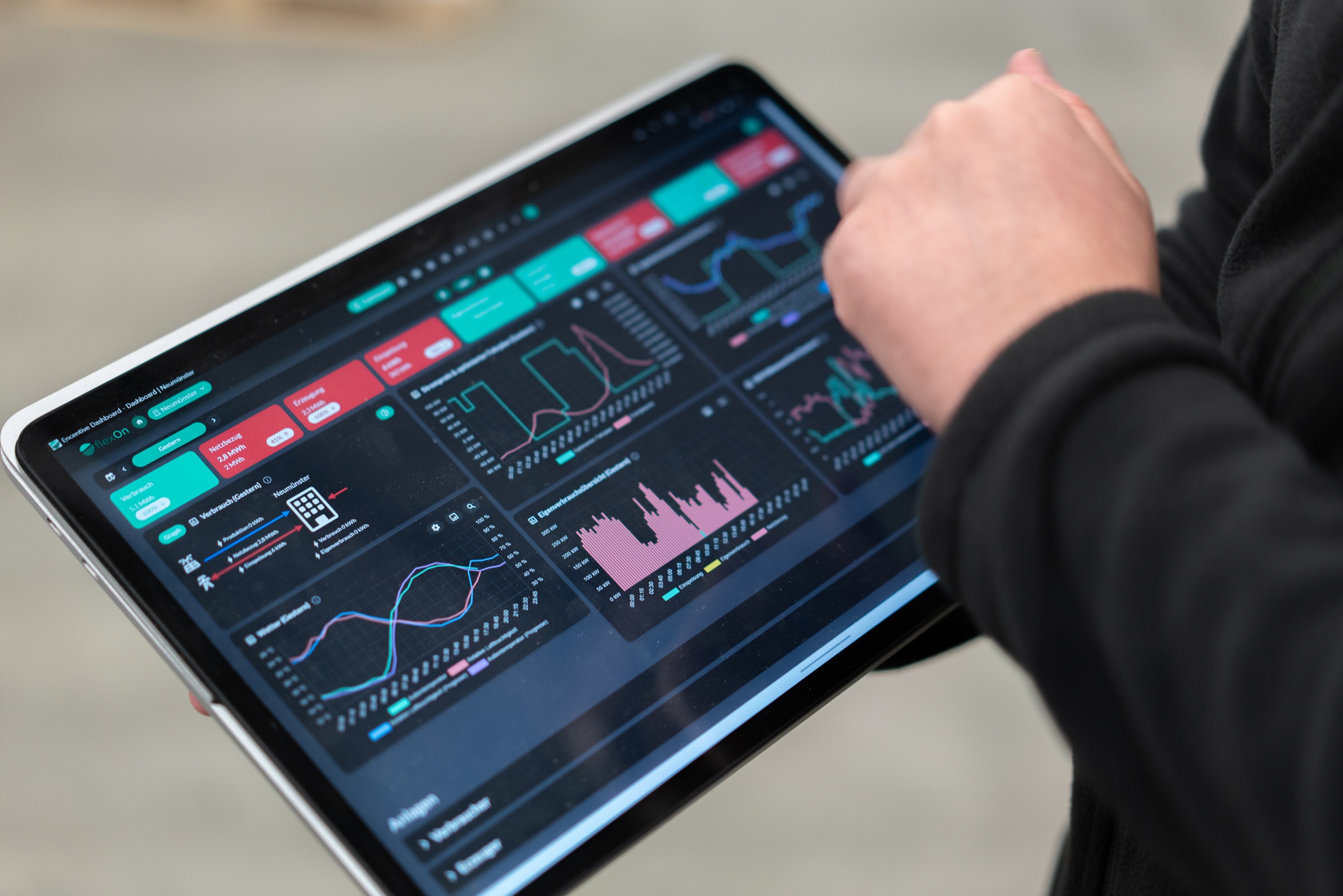Load management
What does load management mean?
Load management refers to the targeted control and optimisation of energy consumption. It is particularly relevant for companies with high electricity demand, as load peaks can lead to significant costs. The aim of load management is to avoid peak loads, reduce grid charges and flexibly adapt energy consumption to supply and demand in the electricity market. The term “load” refers to the energy demand at a given point in time. Effective load management helps smooth out the so-called load curve, reducing costs, emissions and supply risks.
When is load management required?
Load management becomes especially important when:
- High load peaks occur, for example when several energy-intensive machines are switched on simultaneously
- Companies want to benefit from dynamic electricity tariffs or variable grid charges
- Particularly in industries with fluctuating energy demand, load management offers significant potential for savings – both financially and environmentally.How does load management work?
- Renewable energies are to be integrated into the energy mix
- Regulatory requirements or decarbonisation targets must be met
- Production processes allow for some temporal flexibility
Particularly in industries with fluctuating energy demand, load management offers significant potential for savings – both financially and environmentally.
How does load management work?
Load management is based on smart analysis and control of electricity consumption – a data-driven, often AI-supported evaluation of consumption patterns, grid signals and forecasts. Digital systems are typically used to record, predict and automatically regulate energy flows in real time.
It relies on three core strategies:
- Load shifting: Energy-intensive processes are deliberately scheduled during periods of low electricity prices or high renewable energy availability.
- Load limiting: The simultaneous use of power-intensive equipment is avoided to cap load peaks.
- Load shding: In non-critical areas, energy use can be temporarily reduced or paused – for instance, by briefly switching off cooling systems or ventilation units.
Smart energy management solutions enable not only manual interventions but also automated responses to electricity price signals or grid utilisation – a crucial step towards greater flexibility and resilience.
Why is load management so important?
The importance of load management is steadily increasing in the course of the energy transition. With the growing share of volatile renewable energy sources such as wind and solar power, the need for flexibility in electricity consumption is rising. Making electricity consumption more flexible through load management helps stabilise the grid, prevent overloads and use renewable energy more efficiently.
Moreover, companies can significantly reduce their energy costs through smart load management without restricting production. Those who adapt their processes flexibly benefit from lower grid charges, attractive market mechanisms and a smaller carbon footprint.
What defines effective load management?
Effective load management is data-driven, automated and seamlessly integrated into existing operations. It takes into account:
- Real-time data on energy consumption
- Forecasts of generation, consumption and the development of electricity prices
- The specific requirements of production processes
- The potential for flexibility in assets and equipment
Load management becomes particularly powerful when it is not viewed solely as a cost-saving tool but as part of a comprehensive energy optimisation strategy – for example, in combination with energy storage, on-site generation or flexible tariffs.
Companies that invest in digital load management solutions gain long-term advantages in competitiveness, sustainability and supply security – all without disrupting ongoing operations.
More knowledge from our blog

Why companies rely on energy management
There are many reasons why companies are looking for innovative energy management. Based on the experiences and feedback from our customers, we have summarized the three biggest challenges.

Power grid in Oranienburg overloaded: A proposed solution
Last week, various media reported on the electricity shortage in Oranienburg, the causes and the reaction of energy suppliers. Since such cases could occur more frequently in the future, we will look at possible solutions in the following article.

Why it pays to flexibilize your company's electricity consumption
Making electricity consumption more flexible is becoming increasingly important in industry. Companies are faced with the challenge of rising electricity prices, fluctuating energy generation and network utilization. Flexible electricity consumption can help to reduce costs and operate more sustainably. But what does that mean in practice?


